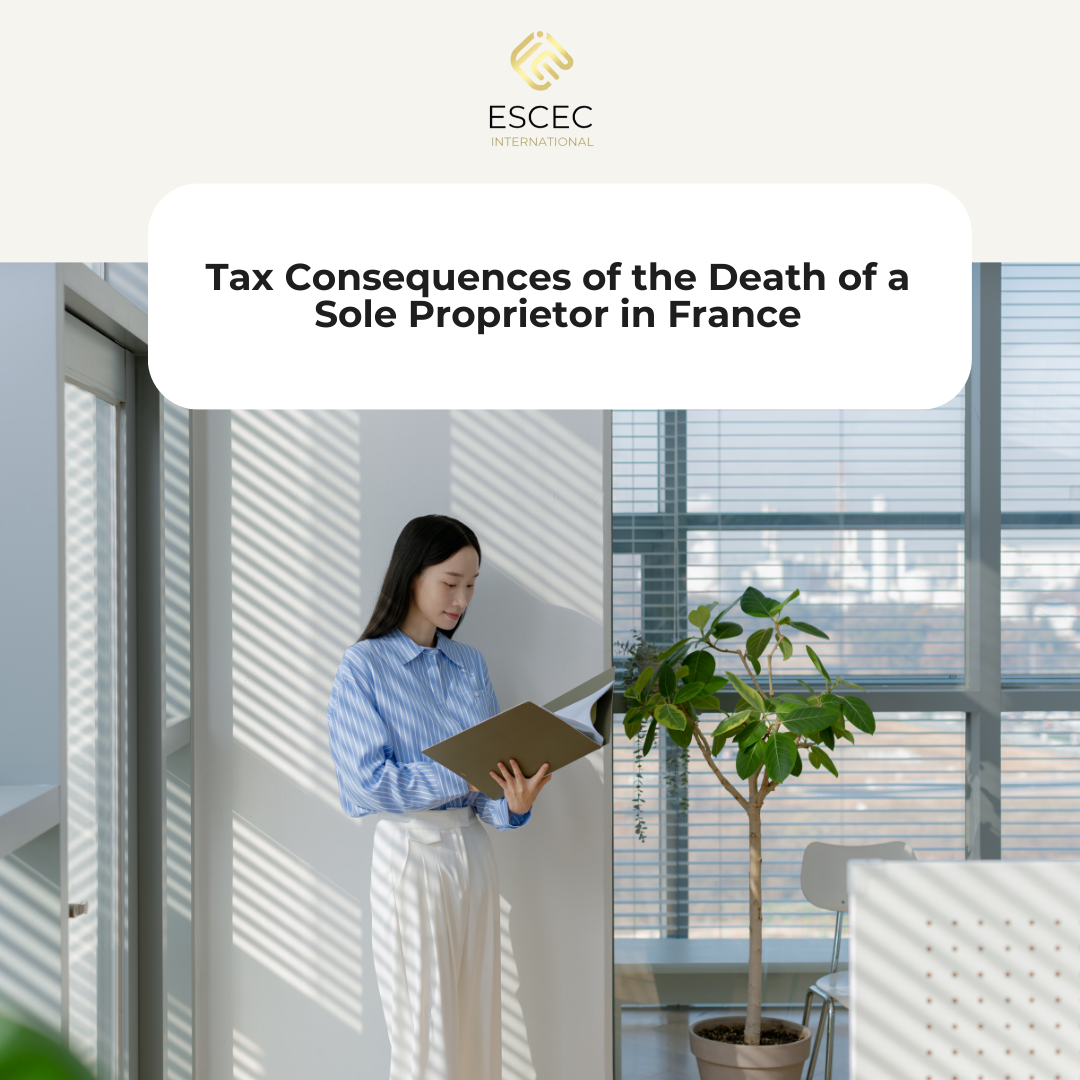Tax Consequences of the Death of a Sole Proprietor in France
The death of an entrepreneur operating as a sole proprietorship in France is not only a personal loss but also a major fiscal event. It triggers important tax consequences, both for the termination of the business activity and for the succession process. Understanding these rules is essential to ensure compliance and protect heirs.
The End of the Sole Proprietorship in France
French law has undergone reforms to align the sole proprietorship more closely with corporate structures. However, unlike companies, a sole proprietorship remains inseparable from the entrepreneur’s personal assets. At death, the professional assets of the sole proprietorship are transferred to the estate of the deceased and cannot continue independently.
This situation leads to two key consequences:
-
The cessation of business activity for income tax purposes.
-
The application of inheritance and gift tax rules for the transfer of professional assets.
Income Tax Treatment for a Sole Proprietor in France
Upon the death of a sole proprietor, all business income is deemed realized up to the date of death. Profits from commercial, non-commercial, or agricultural activities are immediately taxable, as if the business had ceased operations. Any previously deferred gains also become taxable at that point.
Succession and Capital Gains Implications
Professional assets transferred at death are subject to inheritance tax. Additionally, unrealized capital gains on business assets may be taxed unless specific exemptions apply. French tax law provides relief in certain cases, such as when heirs continue the business or when the transfer qualifies under favorable succession regimes.
For more details on capital gains taxation, you can consult French tax regulations on inheritance.
Exemptions and Tax Relief Measures
Several provisions can help reduce the tax burden on heirs of a sole proprietorship:
-
Article 151 septies CGI: Exemption of professional capital gains if the business has been operated for at least five years, subject to thresholds.
-
Article 787 C CGI: Allows heirs or donees who continue the business to benefit from partial exemption from inheritance tax on professional assets.
-
Article 41 CGI: Postpones taxation of capital gains when the activity is continued by the heirs.
These regimes encourage business continuity and prevent excessive taxation that could force liquidation.
Quick Questions About Sole Proprietorship France
Q1: What happens to the sole proprietorship when the entrepreneur dies?
The activity is considered terminated for income tax purposes, and assets are transferred to the estate.
Q2: Are business profits taxed at the time of death?
Yes. All profits earned until the date of death become immediately taxable. Deferred gains also become taxable unless an exemption applies.
Q3: Can heirs avoid immediate taxation?
Yes. If they continue the business under certain conditions, capital gains taxation can be deferred or exempted, and inheritance tax relief may apply.
Q4: Which legal provisions provide relief for heirs?
Key measures include Articles 41, 151 septies, and 787 C of the French Tax Code, which allow deferral or exemption of taxation when the business is continued.
Conclusion: Protecting Your Sole Proprietorship in France
The death of a sole proprietor has major fiscal consequences: immediate taxation of income and potential capital gains, combined with inheritance tax on professional assets. Fortunately, French law provides several exemptions and relief mechanisms designed to encourage business continuity and reduce the burden on heirs.
Proper planning and expert guidance are essential to safeguard the business and protect the heirs’ interests.
Do you need advice on inheritance tax or the transmission of a sole proprietorship in France? At ESCEC International, we guide entrepreneurs and their families through complex French tax and legal rules, ensuring compliance and optimizing available exemptions.
Contact us today to secure your business and protect your legacy.


